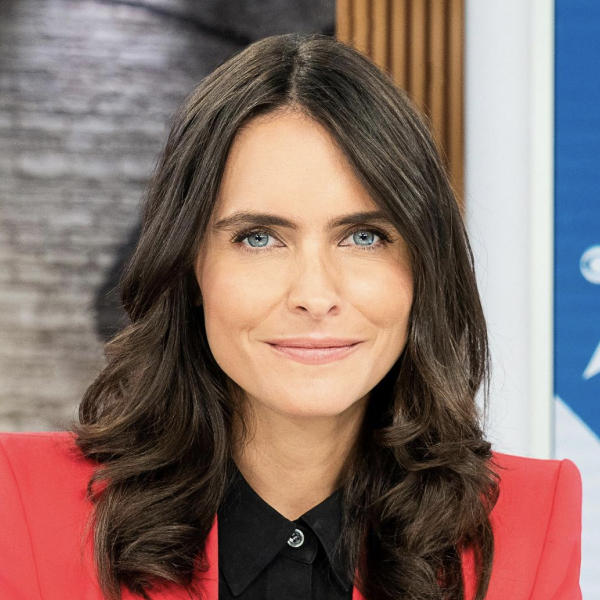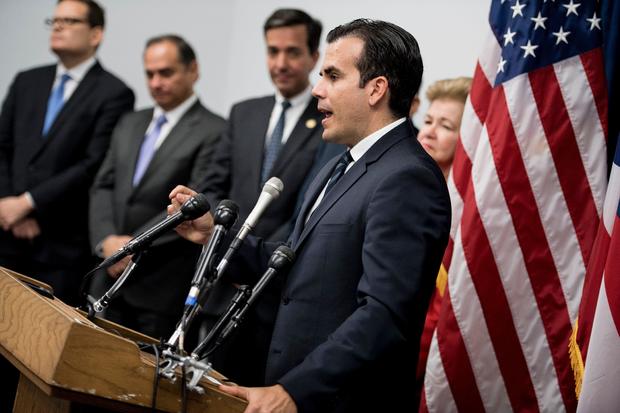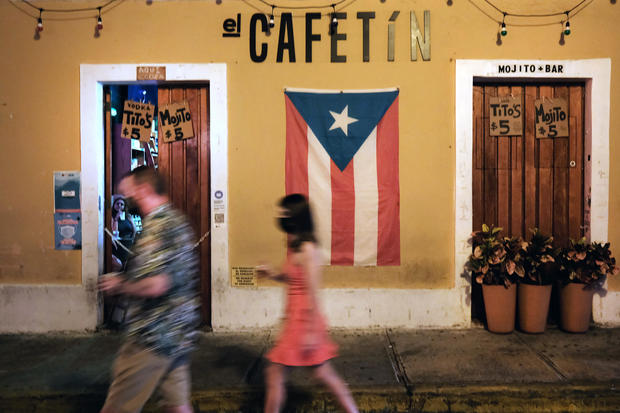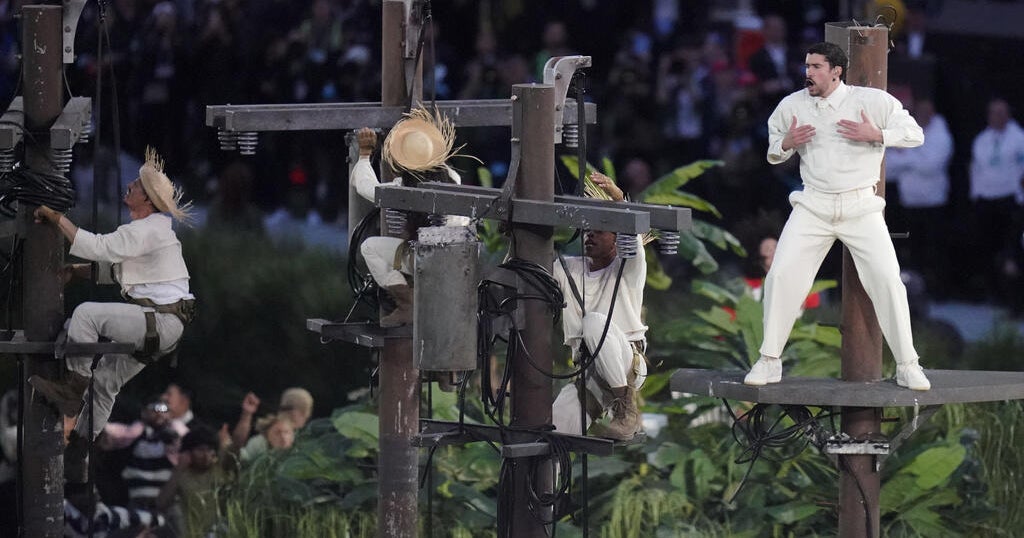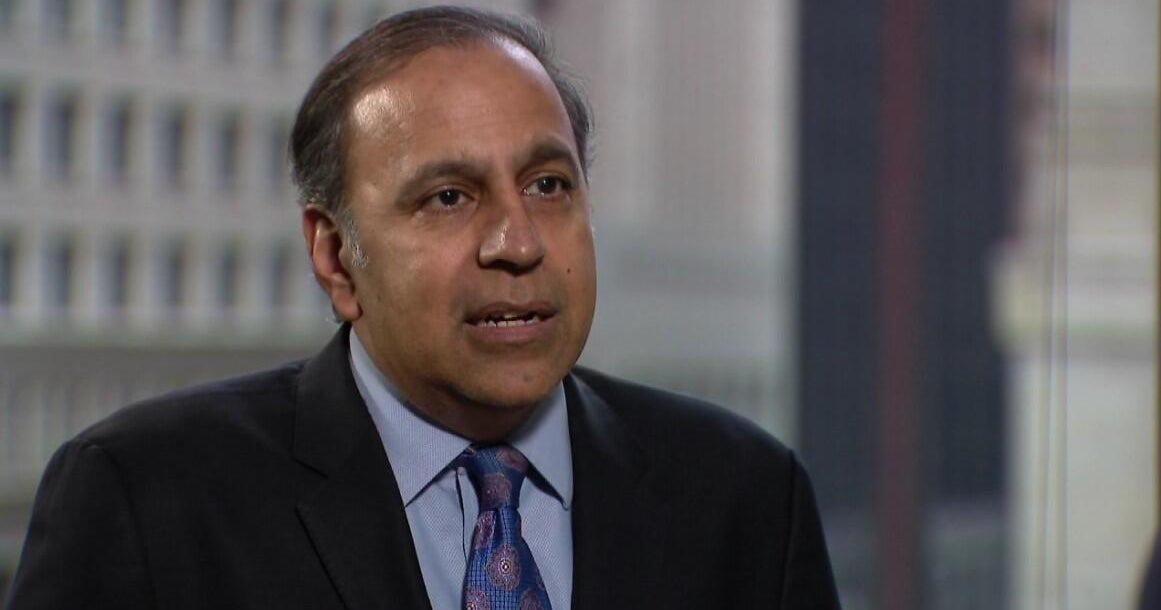Is statehood the answer to Puerto Rico's problems?
Watch the CBS Reports documentary "Fighting for Paradise: Puerto Rico's Future" in the video player above.
Ricardo Rosselló, whose name circled the globe when hundreds of thousands Puerto Ricans took to the streets to demand his resignation as governor in the summer of 2019, may join a group of official lobbyists elected and funded by Puerto Rican taxpayers to make the case for the island's statehood in Washington, D.C. Despite the controversy that forced him from office, he won a majority of votes last month as a write-in candidate for the delegation. Courts are deciding whether Rosselló legally qualifies for the role, since members are required to be a resident of either Puerto Rico or D.C., and he has been living in Virginia since he resigned as governor.
This turn of events may puzzle non-Puerto Ricans wondering how a disgraced leader could be called upon to represent the will of the people who forced him out of power. But in the deeply divided politics around Puerto Rico's status, Rosselló's comeback as a champion for statehood is unsurprising.
The pro-statehood movement now feels especially urgent for supporters who see an opportunity in the majority Democratic U.S. Congress.
Governor Pedro Pierluisi, who served as Resident Commissioner (Puerto Rico's non-voting representative in Congress) from 2009 to 2017, and current Resident Commissioner Jenniffer González have been the leading voices promoting the Statehood Admission Act — a bill introduced by Florida Congressman Darren Soto that would grant Puerto Rico statehood if a majority of voters on the island voted for it in a binding "yes" or "no" referendum.
But that's not the only vision for Puerto Rico's future.
Statehood referendum: What does it really mean?
In November 2020, Puerto Ricans voted for the seventh time since the 1960's in a non-binding referendum on statehood. In this latest up-or-down vote, over 52% of voters said yes to the idea of becoming the 51st U.S. state.
"We are very much a part of America," Pierluisi said in an interview on CBSN. "We want to have the same rights. We want to vote for president, have congressional representation — voting congressional representation — and equal treatment in all the federal programs. It's about time that happens."
But critics challenge the validity of such votes, since the referendum had no consequences attached to it and was promoted exclusively by the governing New Progressive Party (PNP), which is pro-statehood. Critics say it was just as a way to galvanize votes for the party bruised by the 2019 protests.
Manuel Natal, who leads the Citizen's Victory Movement (MVC), one of the island's newer political parties, says, "The problem is how the question was phrased or was formed, what type of education process went into the months and the days before that decision, and most important of all, when Puerto Ricans voted even those that decided to vote yes or no for that statehood question, did they really think that the outcome of that vote was going to matter?"
Also at issue with both the latest referendum and the Statehood Admission Act is that they force voters to choose either yes or no on statehood, excluding other options that many locals may prefer, like remaining as a U.S. commonwealth or securing independence for Puerto Rico.
The case for self-determination
In March, U.S. Representatives Nydia Velázquez and Alexandria Ocasio-Cortez of New York and Senator Bob Menendez of New Jersey introduced the Puerto Rico Self-Determination Act. The legislation would create a constitutional convention in which delegates, elected by Puerto Rican voters and in consultation with Congress and the Department of Justice, would determine a list of status options for Puerto Ricans to vote on in a binding referendum.
"Puerto Ricans deserve to have the full facts and information about what not only the statehood bill contains, but what that transition would mean," Ocasio-Cortez said in a recent congressional hearing, pointing out that the Statehood Admission Act does not guarantee a public information campaign to make sure voters fully understand the implications of becoming a state, including issues like having to pay federal income taxes, which Puerto Ricans are currently exempt from.
She added, "We can't make these transitions with a lack of information and find out afterwards that there are tax implications, financial implications, and status implications that may negatively affect their lives."
Governor Pierluisi told CBS News that even though a 51st state of Puerto Rico would "eventually, tax-wise, we will be on equal footing with the states… it'll be more than offset by a couple of things. First, additional federal money is coming into Puerto Rico. And secondly, the inherent value of being a permanent member of the family, of having a permanent status such as statehood."
Independence and "anti-independence"
There has been growing support for Puerto Rican independence among voters and activists on the island, after decades of repression against the movement.
Juan Dalmau, who received nearly 14% of the vote in the 2020 governor's race, a historically high rate for a pro-independence party, told CBS News, "National sovereignty by means of independence opens the door for us to integrate into the rest of the world, in cooperation and friendship with the United States, but at the same time attracting capital from other countries, participating in treaties with other countries and functioning as a real bridge between the U.S. and Latin America. That cannot be achieved with annexation and statehood."
He says Puerto Rico has historically suffered a "political culture of anti-independence. We are not supposed to exist… a history of persecution, prosecution, marginalization, imprisonment and political assassinations," which he says explains the fear that so many Puerto Ricans express about the possibility of nationhood.
Under the Puerto Rico Self-Determination Act, the options for voters, including independence, "will be negotiated and discussed with a bilateral commission made up of key players of the U.S. government." He says that part is crucial because "we Puerto Ricans could continue debating for another 120 years, but the U.S. government's participation is a fundamental part of the process."
Most of those who oppose statehood, however, aren't looking for independence. Instead, they prefer a continued relationship with the United States. But even those who want to maintain the island's Commonwealth status say some things need to change.
The federal imposition of a Fiscal Control Board in 2016, which controls Puerto Rico's budget and whose power supersedes that of the three local elected branches of government, has left residents unhappy with being treated like a de facto colony.
Former governor Aníbal Acevedo Vilá, of the Popular Democratic Party (PPD), told CBS News, "I have defended Commonwealth all my life, but I have to recognize that all the decisions taken by Congress in the last 20 years, and perhaps in the last 6 years, and the decisions taken by the United States Supreme Court, basically treat Puerto Rico as other territories."
"Yes, we still have self-government," he continued. "But the truth is that the sovereignty of the people of Puerto Rico and all the important powers are in Congress, not here."
